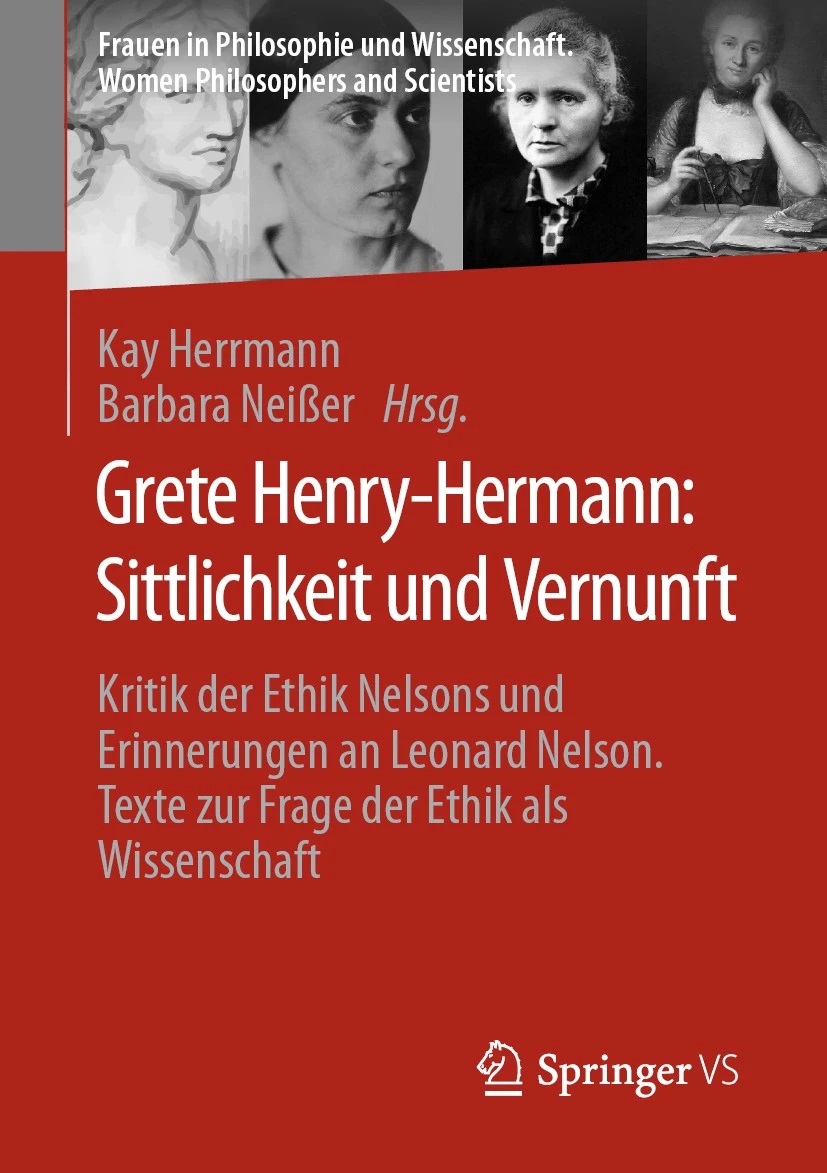 Grete Hermann (1901–1984) was a German mathematician and philosopher. She received a doctorate degree in mathematics at Göttingen, studying under the brilliant Emmy Noether. At Göttingen, she was also taught philosophy by the neo-Kantian and neo-Friesian Leonard Nelson. Hermann would go on to write on a wide range of philosophical topics, including space and time, ethics, and pedagogy. But she is especially noted for a prescient intervention in a debate on quantum mechanics, which went almost unnoticed at the time. At issue was the possibility of so-called hidden variable interpretations of quantum mechanics, in which quantum uncertainties are mere artifacts of isolated quantum systems. Such interpretations allow the world to be fundamentally deterministic, in virtue of the hidden variables, despite what the quantum-mechanical formalism seems to say. In 1932, John von Neumann put forward a proof that all hidden variable theories are impossible. It would follow from this proof that quantum mechanics entails fundamental indeterminism. But soon afterwards, in her article on “Die Naturphilosophischen Grundlagen der Quantenmechanik,” Grete Hermann showed that von Neumann’s proof is fallacious. Moreover, Hermann puts this point in the broader context of a sophisticated discussion of the epistemology and metaphysics of quantum mechanics, and attempts to clarify precisely what the question of determinism amounts to. However, Hermann’s work was unjustly ignored—it was not until the 1950s that hidden variable theories were revived by David Bohm. Such theories are now associated with Bohm’s name, while Hermann remains relatively obscure.
Grete Hermann (1901–1984) was a German mathematician and philosopher. She received a doctorate degree in mathematics at Göttingen, studying under the brilliant Emmy Noether. At Göttingen, she was also taught philosophy by the neo-Kantian and neo-Friesian Leonard Nelson. Hermann would go on to write on a wide range of philosophical topics, including space and time, ethics, and pedagogy. But she is especially noted for a prescient intervention in a debate on quantum mechanics, which went almost unnoticed at the time. At issue was the possibility of so-called hidden variable interpretations of quantum mechanics, in which quantum uncertainties are mere artifacts of isolated quantum systems. Such interpretations allow the world to be fundamentally deterministic, in virtue of the hidden variables, despite what the quantum-mechanical formalism seems to say. In 1932, John von Neumann put forward a proof that all hidden variable theories are impossible. It would follow from this proof that quantum mechanics entails fundamental indeterminism. But soon afterwards, in her article on “Die Naturphilosophischen Grundlagen der Quantenmechanik,” Grete Hermann showed that von Neumann’s proof is fallacious. Moreover, Hermann puts this point in the broader context of a sophisticated discussion of the epistemology and metaphysics of quantum mechanics, and attempts to clarify precisely what the question of determinism amounts to. However, Hermann’s work was unjustly ignored—it was not until the 1950s that hidden variable theories were revived by David Bohm. Such theories are now associated with Bohm’s name, while Hermann remains relatively obscure.
On our webpage you can find three volumes on Grete Hermann in German:
Herrmann, K. & Neißer, B. (2023a). Grete Henry-Hermann: Sittlichkeit und Vernunft: Kritik der Ethik Nelsons und Erinnerungen an Leonard Nelson. Texte zur Frage der Ethik als Wissenschaft. Springer VS.
Herrmann, K. & Neißer, B. (2023b). Grete Henry-Hermann: Die Rationalität des Widerstands: Der Kampf Gegen Den Nationalsozialismus und Exilschriften. Texte Zu Politik und Recht. Springer VS.
Herrmann, K. & Neißer, B. (2023c). Grete Henry-Hermann: Politik, Ethik und Erziehung: Texte Zur Praktischen Philosophie Sowie Zu Politischen und Pädagogischen Fragestellungen. Springer VS.
Furthermore you can find a paper on Grete Henry-Hermann in our fifteenth volume of the Springer Book Series: Women in the History of Analytic Philosophy.
You cannot copy content of this page








